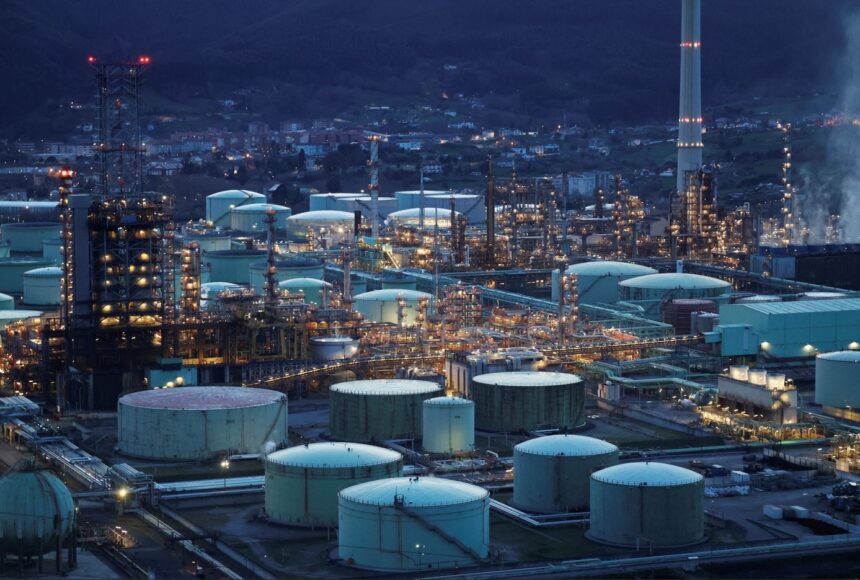The markets responded with predictable panic yesterday as oil prices surged following Iran’s unprecedented missile barrage against Israel. Brent crude jumped nearly 4% in early trading, hitting $79 per barrel before settling around $77.50 by day’s end.
“This isn’t just another Middle East flare-up,” I told my editor on a scratchy phone line from Brussels last night. The scale of Iran’s direct attack—over 300 missiles according to Israeli officials—represents a dangerous new phase in a conflict that has already devastated Gaza and threatens to engulf the entire region.
At the European Commission headquarters, where I’ve been embedded with energy security officials this week, the mood shifted from concerned to grim. “We’ve war-gamed scenarios like this, but hoping they’d remain theoretical,” confided a senior EU energy advisor who requested anonymity due to the sensitivity of ongoing diplomatic efforts.
Global markets registered the shock immediately. Tokyo’s Nikkei index fell 2.8%, while European markets opened down across the board. Wall Street futures pointed lower as investors moved toward traditional safe havens like gold and U.S. Treasury bonds.
The economic ripple effects extend far beyond trading floors. For consumers already struggling with inflation, higher energy prices threaten to undermine the nascent economic recovery many nations were experiencing. The International Energy Agency estimates that every $10 increase in oil prices correlates to a 0.2-0.3% drag on global GDP growth.
“People forget that oil isn’t just about gas prices,” explains Dr. Elina Ribakova, visiting fellow at the Peterson Institute for International Economics. “It affects everything from air travel to plastics production to fertilizer costs. The economic contagion spreads quickly.”
What makes this crisis particularly concerning is the fragile state of global oil infrastructure. The Strait of Hormuz, through which approximately 20% of global oil passes, remains vulnerable to disruption. Iran has previously threatened this critical chokepoint during periods of heightened tension.
Speaking with local energy analysts in Brussels, I found widespread concern about Europe’s ability to weather another supply shock so soon after diversifying away from Russian energy. “We’ve rebuilt our resilience since 2022,” says Marcel Koopmans of the European Policy Centre, “but another major supply disruption would severely test our systems.”
The U.S. Strategic Petroleum Reserve remains at historically low levels following large releases during previous price spikes, limiting America’s capacity to buffer market volatility. According to Department of Energy data, the reserve currently holds about 363 million barrels, down from over 600 million barrels in 2020.
Saudi Arabia could theoretically increase production to stabilize markets, but the kingdom has shown reluctance to open the taps without careful consideration of its own economic and political interests. Their relationship with both the United States and Israel remains complex and pragmatic rather than ideological.
On the streets of Amman, Jordan, where I reported last month, ordinary citizens express exhaustion at yet another crisis. “We always pay the price for these conflicts,” taxi driver Mahmoud told me as we drove past gas stations where prices had already been adjusted upward. “Not the politicians, not the generals—regular people.”
The timing couldn’t be worse for global economic stability. The International Monetary Fund had recently revised growth projections upward, but these new tensions threaten that optimism. Central banks navigating inflation concerns now face additional complications in their policy decisions.
Market analysts like Helima Croft at RBC Capital Markets have long warned about underpricing geopolitical risk in energy markets. “The market has become desensitized to Middle East risk premiums,” she noted in a recent research note shared with clients.
The Biden administration faces difficult choices ahead. Officials at the White House and State Department have been working around the clock to prevent further escalation while also demonstrating support for Israel. Energy security now joins military and diplomatic concerns at the top of the agenda.
European officials I spoke with privately acknowledge their limited leverage in the situation but stress the importance of a unified diplomatic approach. “Our economic security is directly tied to stability in that region, whether we like it or not,” one senior EU diplomat explained.
For now, markets remain in wait-and-see mode, with volatility expected to continue as investors process each new development. The crisis serves as a stark reminder that despite diversification efforts and the growth of renewable energy, oil remains the lifeblood of the global economy—and the Middle East its beating heart.
The coming days will prove critical. As I prepare to head to Vienna for emergency energy consultations, the question on everyone’s mind isn’t just how high oil prices might go, but how widespread the conflict might become. The answers will shape not just market performance but the lives of millions across multiple continents.






